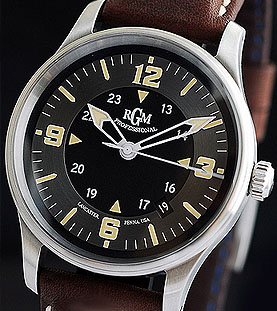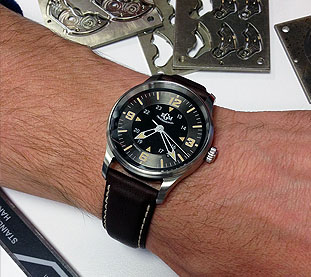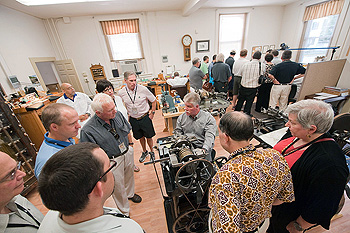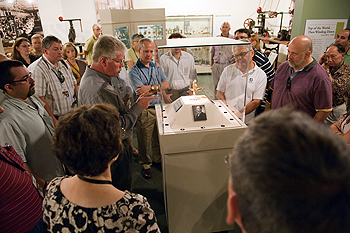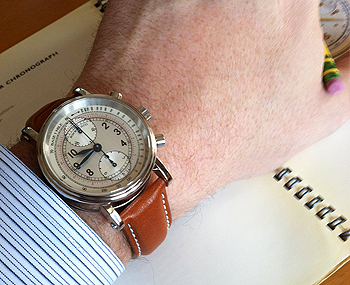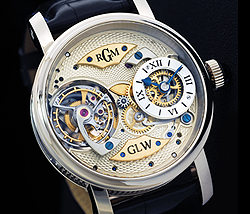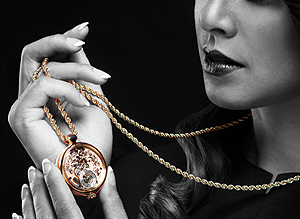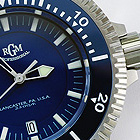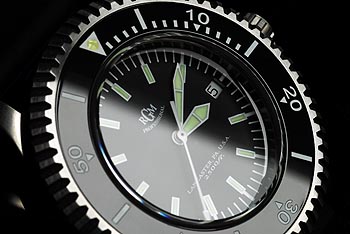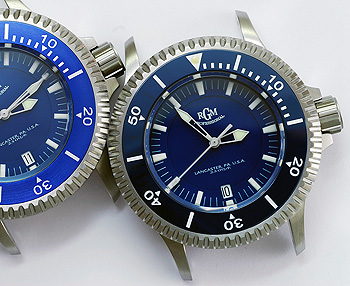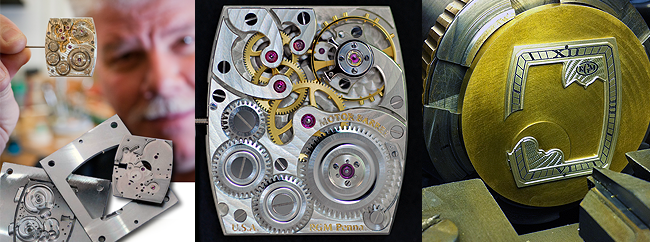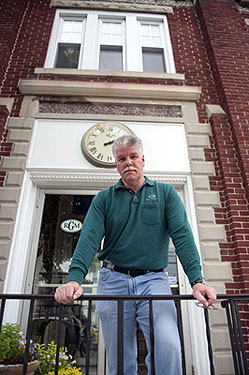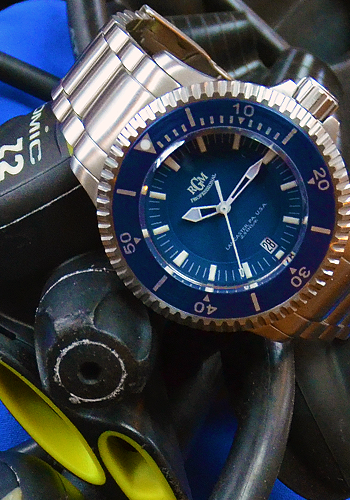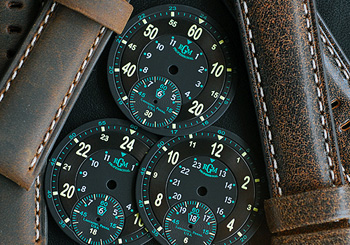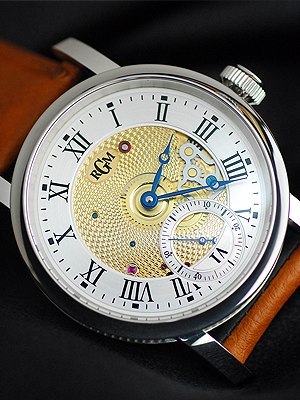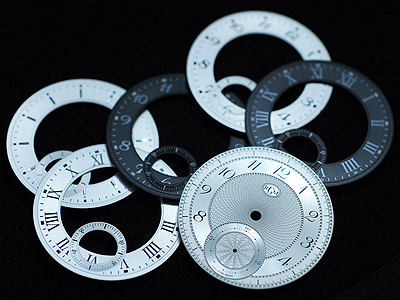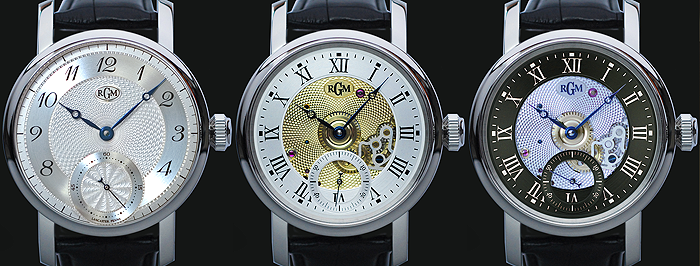The Art of Time: A look inside the LUXURY TIMEPIECES of RGM Watch CompanyBy Eric Tegler
Taken from Celebrated Living, Autumn 2014 edition, pp. 36-39
Glance at the watch on your wrist. It may be modest or magnificent but, almost certainly, it isn’t American-made.
The modern watch business is dominated by European and Asian manufacturers at both the high and low ends. As a result, most of us have forgotten that for nearly a century, from the 1870s to the 1950s, storied American watch manufacturers like Hamilton and Bulova were known the world over for mass producing quality timepieces.
But the diversion of American precision manufacturing for World War II and the quartz-watch technical revolution of the 1960s reduced watchmaking in the U.S. to a shadow of itself. By the mid-1970s, the market for mechanical watches had all but evaporated, and with it went America’s manufacturers.
Today, while there are a few brands that claim to be “American made, there is really only one: RGM Watch Company in the small, quiet town of Mount Joy, Pa. RGM is keeping alive the watchmaking skills, processes and techniques that have nearly vanished from this country – and it is doing so successfully by being a low-volume niche business.

RGM is named for its founder, Roland G. Murphy, a Marylander who spent his high school years learning cabinetmaking and working at Danecker Clock Company, which specialized in grandfather clocks. There, his curiosity in timepieces was piqued, and he began tinkering with clock movements, disassembling them and successfully putting them back together.
That hands-on time led Murphy to Bowman Technical School in Lancaster, Pa., in 1980. The renowned watch and jewelry school cemented his interest in the techniques and history of watchmaking, leading him to become acquainted with the legacy that made America’s industry great. “I wasn’t just learning,” Murphy asserts, “I was very much an enthusiast.”
Lancaster had been a hub of America’s watch industry since the 19th century, but in the 1970s, its premier firm, the Hamilton Watch Company, moved a portion of its operations to Switzerland. This country was the last bastion of mechanical watchmaking, and after Bowman, Murphy went there as a trainee in the Watchmakers of Switzerland Training and Educational Program (WOSTEP).
Valuable though his WOSTEP training was, Murphy graduated just before the industry began to boom again. With few job offers, he returned to Lancaster, where he landed a product-development position with the Hamilton Watch Company. His enthusiasm and traditional watchmaking knowledge helped him to take on a varied role and, in the process, he learned product development, supplier relations and logistics.
“I had a watchmaking-and-restoration background, and I was getting an education in how the modern industry worked,” he recalls.
Murphy stayed with Hamilton until about 1991, doing his own restoration work on the side. By that time, he was losing interest in corporate watchmaking.
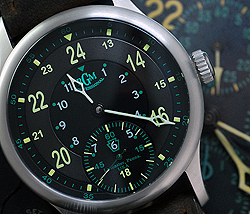
“The product was getting cheaper,” he says. “When I started, we still made gold and gold-filled [watch] cases. By the time I left, we had maybe three microns of gold in a case. It was just about money.”
Money has never been a prime motivator for Murphy, but the passion and desire to build lasting mechanical timepieces is. When he formed RGM Watches in 1992, his goal was merely to ply his craft on his own terms.
“There was no grand plan to establish a brand,” he admits. “I thought I’d start a business and see what I could do.”
Working from his attic, Murphy launched the company by doing watch restoration and repair, and by buying and selling watches while he designed the first RGM watches. Rendered in classic styles, they used Swiss components, and Murphy relied on proven suppliers and connections he had from a generation of watchmaking executives that was rapidly disappearing.
“They were still people you could work with as a little guy. I could go over there to a case company and sit at the table with the guy who ran it, and he would help me out. I meant nothing to them financially. They liked my passion. If I tried to do [today] what I did then? No way.”
Though RGM assemble high-grade watches based around Swiss movements, Murphy’s ambition was to become a manufacture, a French term denoting a firm that fabricates nearly all of its parts. Despite marketing-speak to the contrary, at the time, only a handful of firms actually fit that description, and all were in Europe.
“The term watchmaker is not a very accurate term,” Murphy explains. “It’s used mostly to describe people who repair watches, not for people who make watches. I didn’t just want to be a watchmaker who cases-up somebody else’s movement.”
Murphy decided to make his own movements in 2000, embarking on a daunting intellectual, experimental, and artistic process. It took seven years. Along the way, he found the artisans he needed and a place to put them, establishing the RGM headquarters in a former bank building, complete with its original vault. There, six watchmakers, including Murphy, craft watches based on three different RGM movements: Calibers 801 and 20, and the nearly $100,000 Pennsylvania Tourbillon.

The Caliber 20 and the Pennsylvania Tourbillon require anywhere from six months to a year to make, and thus far, the company has made fewer than 200. They are true luxury items, hand-fabricated using RGM’s own jigs and tooling. The dials, hands and most movement pieces are made in-house using a combination of vintage machines and modern CNC machines. RGM is known particularly for its “guilloché” dials, intricately patterned using machines Murphy has personally collected.
Where RGM cannot technically or economically make a component, it is sourced locally. Watch cases, for example, come from a precision machine firm a few miles away to be finished and assembled in the old bank. More than 90 percent of the content of RGM’s proprietary Caliber and Tourbillon watches is made in Pennsylvania.
RGM continues to sell watches based on Swiss movements at prices starting at $2,500 because it’s important to Murphy to serve the clients who got him started. Even at this price point, though, he asserts they are the most American-made watches you can buy today. (Swiss movements notwithstanding, they use made-in-America components, fabricated in-house or sourced locally.)
“I see people trying to emulate that. They’re assembling Swiss quartz movements here and sourcing cases from Asia and they’re [the subject of] articles that say ‘American-made’. You can imagine how that makes me feel.”
RGM’s classic movements echo those of America’s first and finest makers, using proven teeth shapes and shying away from exotic materials because Murphy insists they be reliable and, unlike other haute horlogerie watches, repairable decades from now.
“My business has never been run strictly as a business,” Murphy says quietly. “I’m sure, at times, that’s hurt me.”
Possibly. But for anyone with a serious affinity for luxury timepieces and a desire for an expertly crafted American mechanical watch, it has surely helped.
